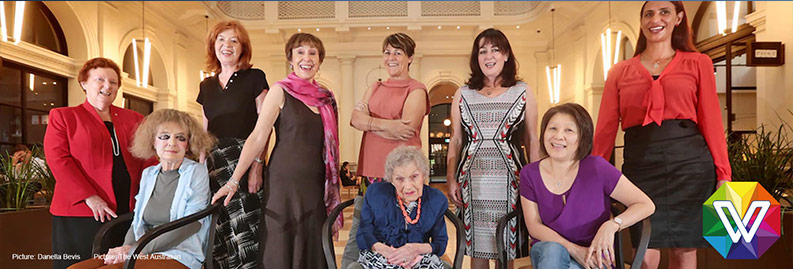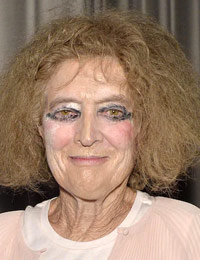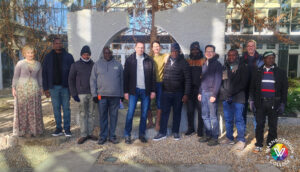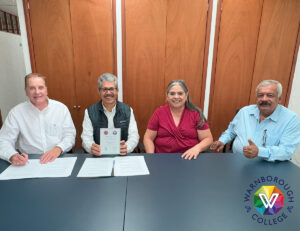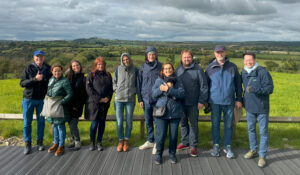Betsy Buchanan was inducted into the Western Australia Women’s Hall of Fame in recognition of her many years of legal and human rights work on behalf of the indigenous people’s of Australia. She received an honorary degree from Warnborough in 2006. In 2000, she received the distinguished Non-Indigenous Award from the National Aborigines and Islanders Day Observance Committee (NAIDOC). Betsy spoke to us about how it felt to received her new award and gave us an overview of her work by telephone.
You can listen to the interview here:
Abridged interview transcript
Recently you were inducted into a Hall of Fame. How did it feel?
It’s wonderful. I felt very pleased because It’s recognising all my work and experience with disadvantaged families and I felt like it meant a lot to them.
You have worked with the Noongar community. For those that don’t know, can you tell us a little bit about them?
Before white people came to WA (Western Australia), the area was divided into different communities, with different languages… quite complex linguistically. Noongar are from an area above Perth right down to Esperance, so it’s a vast area. I grew up in an area where Noongar people had been displaced onto reserves and missions. They worked on our property alot, so I had a lot of childhood contact, especially through nannies and people who worked on the property.
You helped families try and find their children. What had led to them being estranged in the first place?
It was the government policy. It was the government policy of the removal of children, which went on in WA, almost bordering on eugenics and an apartheid system.
Since 1976 (when Betsy opened the first community law centre in Western Australia), can you give us a snapshot of some of the work you have done?
We did a lot of work trying to find basic housing because that was the most presented need. People were chronically homeless and they couldn’t make any progress with the bureaucracy, to even contact their children, unless they had some reasonable housing. Also, because of the terrible conditions we discovered, a lot of people needed disability pension support. A lot of the children, when they were returned, needed child disability.
In the present day, what kind of issues do you deal with on a day to day basis?
For the last five or six years, we have been focusing a lot on the Royal Commission into institutionalised child abuse.
A lot of the indigenous families, particularly the men, were diffident about disclosing child abuse and very traumatised. Because they had known us for so long, and because centres were set up that were funded… they came to us instead.
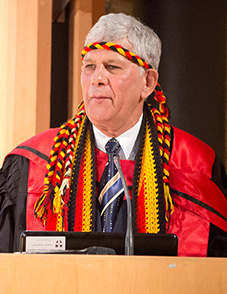
In what ways can an educational institution help the community?
Well that’s a huge area, in fact it’s one of the most emphasised.
Robert Isaacs (Aboriginal elder) who grew up in a Christian brothers institution, virtually as an orphan at that stage, was awarded a PhD by Warnborough. That certainly increases your recognition in the community and it’s certainly very helpful, because indigenous people here are much more striving now to have specialist education so they can provide some kind of framework for their own community.
Thank you very much for your time today Betsy, it’s been great to talk to you.
I wanted to also say thank you for the recognition you gave me. It has certainly helped with the people I work with a lot, especially when I had to deal with the housing authorities and they were very keen to evict people. The head of the department made the staff use ‘Doctor’. I always wanted to thank you for that.
Betsy was awarded a PhD by Warnborough College for her splendid work for the Australian community in 2006.
Want to make a change in your community? Take a look at our programs and see how you can use your knowledge and creativity to make a difference:

